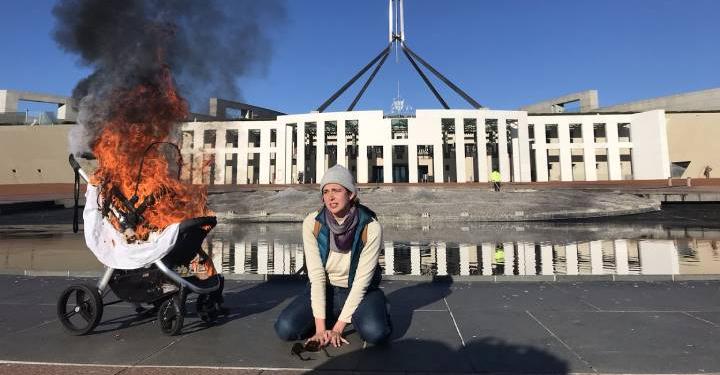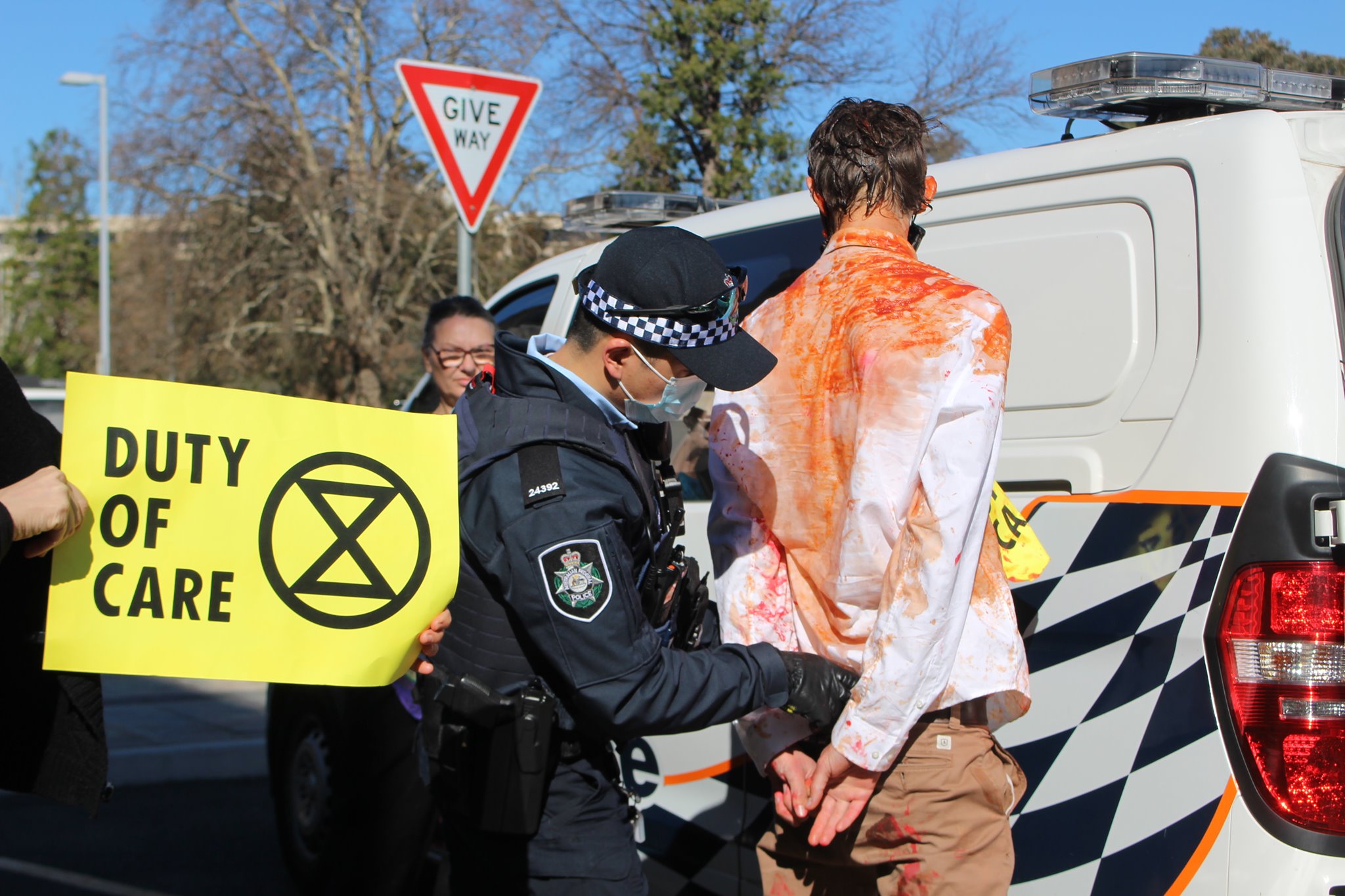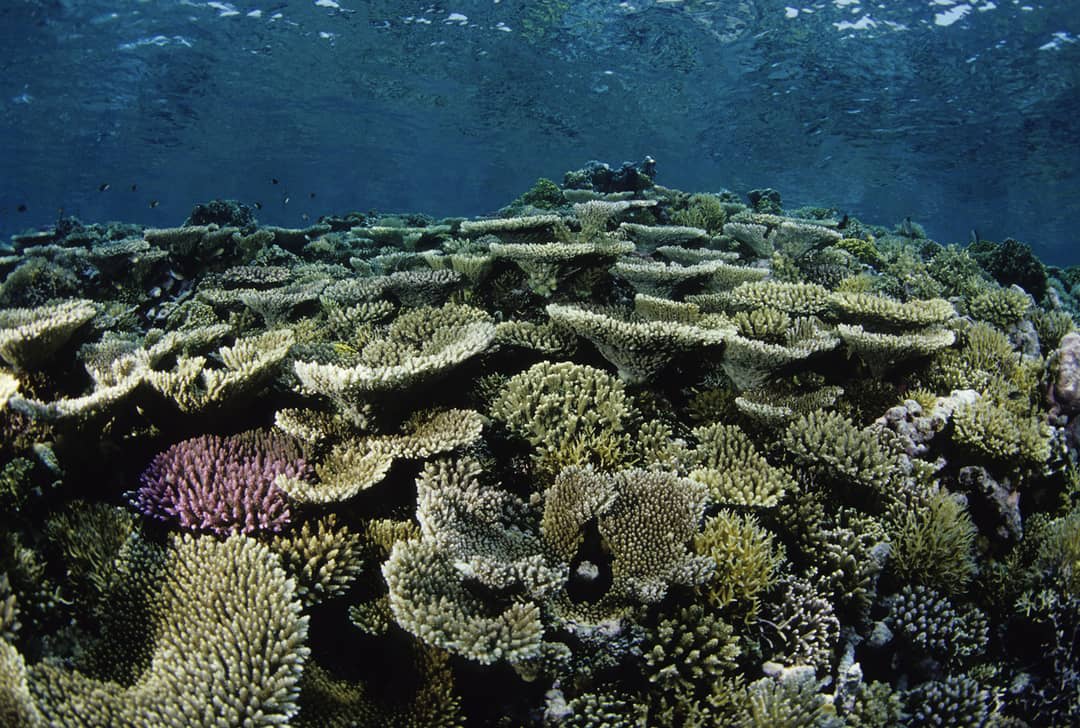
Collective action a counterpoint to Australian government inaction
Rhonda Garad and Joanne Enticott, Monash University, 15 Aug 2021
There’s a sliver of hope in the IPCC report that we can turn around the planet’s destructive path. And there’s further hope in the collective actions of Australians who are making significant strides to reduce our emissions.
As leading scientists call on the world to avert an impending climate catastrophe, Prime Minister Scott Morrison responded with this:
Effectively, Scott Morrison is reasserting his already refuted assertion that Australia is “too small to matter”.
When asked if he will increase his government’s emissions targets, he replied:
“I don’t make blank-cheque commitments that you \[Australians] end up paying for.”
He is, seemingly unaware that losses due to climate inaction have been costed at $4.8 trillion per year.
Meanwhile, outside Parliament, Extinction Rebellion members are arrested for attempting to spray-paint the words “Climate Duty of Care” on Parliament House.

Inside Parliament, the Minister for the Environment, Sussan Ley, is proving she owes no duty of care. The powers of her office are focused on overturning a declaration by the Federal Court that she owes a duty of care to protect children from effects of climate change. This is following her return from convincing the UNESCO not to list the Great Barrier Reef as “in danger”. It’s just a little unwell, it seems.

But erasing words such as “duty of care” and “in danger”, does nothing to assuage the worry Australians have about climate change.
My colleagues and I just published data showing that Australians are almost three times more worried about climate change than COVID, with many showing signs of PTSD from past or future climate-related, catastrophic events.
We found people are displacing their eco-anxiety by taking positive actions where they can – actions such as seeking and appreciating nature, joining local climate action efforts, and lending their voice to climate advocacy.
Some stated that lack of climate action was adding considerably to their despair. One responder encapsulated how many feel:
“My mental health is more affected by frustration at our government’s lack of action on the issue of climate change and their continuing stance on fossil fuel industries. Their lack of commitment to the future and their refusal to acknowledge the science. Very, very frustrating.”
That Australia is lagging at the “back of the pack” of OECD countries on climate action appears to be of little concern for the federal government, which maintains it will “meet and beat” Paris targets “in a canter”.
The Morrison-led government has continually resisted calls to increase our climate target above 28% in light of worsening climate data.
And the federal government also has no net zero timeline. Rather than leading our country to safer waters, the government is like an officer on the Titanic, telling passengers to return to their rooms and relax. But Australians can see the iceberg.
And the just-released IPCC report shows just how large the iceberg is, and how close. (Read more on this at IPCC report: A grim scientific assessment of how and why the planet is warming)
We learn that the world is now warmer than at any time in the past 125,000 years. The rate of warming is unprecedented, causing more extreme and frequent storms, floods, droughts and fire events, the likes of which we’ve never before experienced. Sea-level rise, and permafrost thawing, are now locked in, and we’ll reach 1.5°C in less than a decade.
Australia is on the frontline of countries most affected by climate change
We’ve hit 1.4°C and will face hotter and prolonged heatwaves, extended bushfire seasons with more dangerous fire weather, and marine heatwaves. Sea levels are rising faster in Australia than the global average, and sandy shorelines are already retreating in many areas.
The words of a child rings in our ears. 'It’s time to panic'.
Amid the hand-wringing and despair, there’s hope
There’s a sliver of hope in the IPCC report that we can turn around the planet’s destructive path. And there’s further hope in the collective actions of Australians who are making significant strides to reduce our emissions.
The IPCC report provides a clear path to avoid the worst-case warming scenario. The report outlines significant improvements in prediction tools, which is critical to both our survival, but also to trust in the data. And if we control CO₂ rapidly in the next 10 years and achieve net zero, its contribution to warming will stop, even as locked-in permafrost continues to thaw.
Also, if we get to net zero CO₂ globally by 2050, we have a good shot at keeping warming to 1.5°C. Additionally, a rapid reduction in methane in the next decade will prevent near-term warming, and improve air quality. And perhaps most hopeful of all – if we reduce greenhouse gas emissions to net zero, we may even see a small reversal in warming.
What’s equally hopeful are the actions of individuals, communities and organised groups that collectively are making a substantial contribution to emission reduction.
One in 5 Australian households have some from of solar. If our enthusiasm for solar matched our uptake of the COVID vaccine, we would be looking at a post-COVID future. And although the number of electric vehicles is low at 0.7% of sales, Australians want policies in place to bring down the price and set up the infrastructure.
Australians are also committed recyclers and composters. Our research shows that people are keen to take individual and community actions that make a meaningful difference to reducing pollution. But they want strong leadership, too.
Business doing its bit
In many respects, the pivoting of many sectors of the business sector towards decarbonisation has been a surprise. Business is now recognising the risks of inaction from consumers, shareholders, and activism. This risk is starkly apparent in the recent hijacking of Exxon Mobil’s board by climate activists.
Leaders across the board are calling for ambitious targets and certainty in the business sector. Even the conservative RBA has been making a strong business case for effective climate policies since 2019.
Health professionals are also engaged in climate action in Australia.
Australian medical colleagues and health organisations – including the Royal Australian College of General Practitioners, Council of Presidents of Medical Colleges Australia, the Australian Medical Association, Climate and Health Alliance, Public Health Association Australia, and the Nursing Federation – recognise the critical role that health professionals have in managing and responding to the threats of climate change to health. A coalition of health organisation sent an open letter to the Prime Minister demanding climate action.
Local government takes action
Each year, all local government councils (537) across Australia come together for a national assembly. This year they took extraordinary action in unanimously calling on the federal government to formally recognise a state of climate emergency, and to appoint a minister for climate change/emergency to champion climate change efforts across the country.
Also, about one in five (104) councils have declared a climate emergency, and a recent report found that just 60 local council emission reduction projects have the potential to cover off 90% of our federal 2030 Paris targets.
We’re panicked now. And that’s the right response, as the IPCC report makes clear that the climate catastrophe that once seemed a long way off is here, right now.
Our research showed that when governments take science-based actions commensurate to the scale of a common threat, such as with COVID, we feel less panicked.
This IPCC report is an SOS to the world, and in particular Australia, to take heed, and do everything possible to save a liveable planet. If governments won’t take appropriate action, Australians will use their collective power to bring it on.
This article was co-authored with Rebecca Patrick, a climate-health researcher.
This article was first published on Monash Lens. Read the original article
Rhonda Garad is Senior Lecturer and Research Fellow, Monash Centre for Health Research and Implementation
Joanne Enticott is Senior Research Fellow, Monash Centre for Health Research and Implementation (MCHRI), Monash University